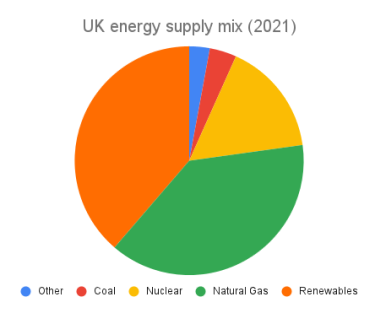Greenwash vs. meaningful renewable energy tariffs
There are two types of ‘100% renewable’ energy tariffs.
For the first, the company essentially produces or buys whatever energy they want, including fossil fuels. They then purchase a number of certificates to say that their energy is ‘renewable’, and this allows them to make eco-friendly claims.
This sounds ineffective, because it is.
The idea behind the certificates (known as REGOs) is that the money from their purchase provides a subsidy for renewable developers. In theory, this could support the growth of renewable infrastructure, like solar and wind farms, in the UK.
The problem is that REGOs are very very cheap, because there are many more available than companies want to buy. This means that they provide only very marginal support for developers: 30-50p per certificate last time we looked (or 1% of wholesale energy costs).
For this reason, Ethical Consumer does not consider companies relying on REGOs to be making a meaningful contribution to renewable energy in the UK. Under UK law they can call themselves renewable, but we remain sceptical of how much the title really means.
Funding renewable infrastructure?
Luckily, there is a second kind of renewable energy company that may be slightly more effective. These companies sell renewable energy tariffs that directly contribute to renewable energy infrastructure.
They either build and produce renewable energy themselves, in which case your tariff may support them to do so, or they have contracts directly with renewable suppliers. These contracts provide a reliable income to the suppliers, allowing them to develop and grow.
Ethical Consumer considers these to be the more eco-friendly companies. The UK government also considers them to be doing something different, and for this reason has exempted them from the energy price cap, which sets a limit on how much companies can charge.
There is however a catch: because subsidies and costs are shared between all energy companies, you may not be providing renewable energy with a huge amount more money. We do, however, think that if you can afford it, it is still worth supporting companies that are trying to build and invest in renewables, and that are not supporting fossil fuels.







